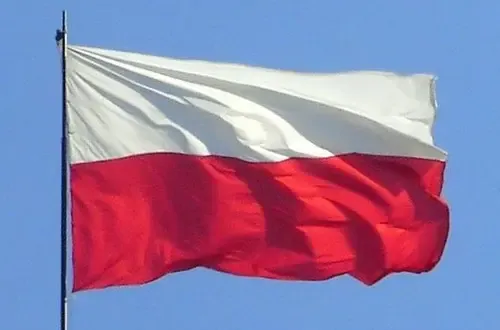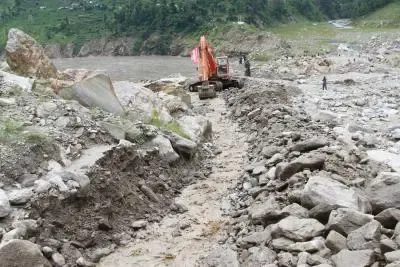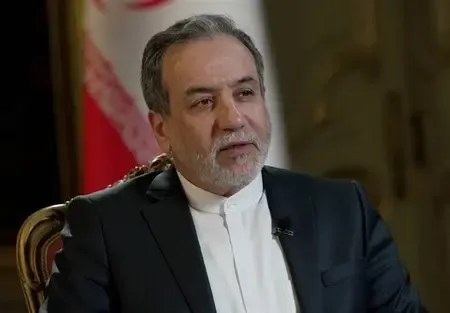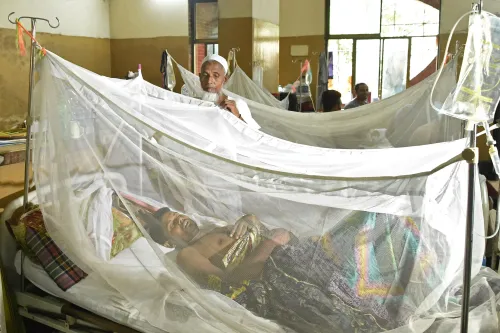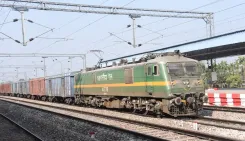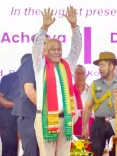Will South Korea Revive Inter-Korean Projects with North?
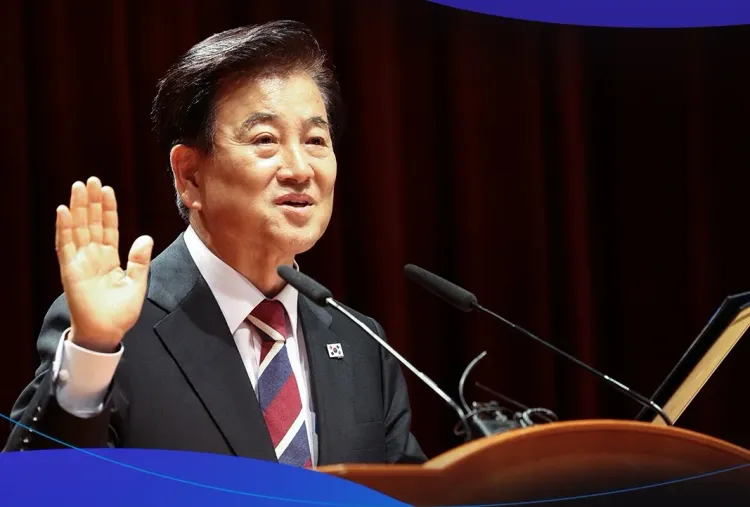
Synopsis
Key Takeaways
- The Inter-Korean Cooperation Fund aims to foster humanitarian projects in North Korea.
- South Korean nationals can now interact with North Koreans with prior reporting.
- Minister Chung Dong-young emphasizes the importance of renewed engagement.
- The fund has seen a significant budget decline due to diplomatic tensions.
- Activists welcome the relaxed restrictions for humanitarian outreach.
Seoul, Aug 4 (NationPress) South Korea’s Unification Minister Chung Dong-young announced on Monday that the government intends to reinstate the use of the Inter-Korean Cooperation Fund for humanitarian initiatives in North Korea once bilateral contact is re-established. This signals a possible thaw in the historically strained inter-Korean relations.
“It is surprising that there was no execution of the Inter-Korean Cooperation Fund last year,” Chung stated during a gathering with the NGO Council for Inter-Korean Cooperation. He voiced concerns over the stagnation in engagement and stressed the necessity for renewed collaboration through peaceful and humanitarian avenues.
Established in 1991, the fund aims to foster economic cooperation as well as social and cultural exchanges between the two Koreas. It has historically played a vital role in promoting dialogue and goodwill on the peninsula, with its budget peaking at 439.7 billion won (approximately US$317.4 million) in 2007. However, this amount has significantly dropped due to North Korea's ongoing nuclear and missile provocations, which have led to escalating diplomatic tensions.
The last allocation from the fund occurred in 2023, when 900 million won was designated for a child nutrition initiative.
Nevertheless, broader projects have been stalled due to deteriorating relations and a lack of formal communication channels.
Recently, Chung approved updates to ministry guidelines regulating declarations of contact with North Koreans.
According to the new protocols, South Korean nationals can freely interact with North Koreans, provided they report the contact in advance. These adjustments aim to enhance transparency and allow greater flexibility in civil society-led engagements.
“Just report it and meet them freely,” Chung encouraged, urging civic groups to take a more proactive role in improving the chilly inter-Korean relations and laying the groundwork for future cooperation.
In reaction, Choi Chang-nam, Vice Chairman of the NGO Council, remarked that the relaxed restrictions were a welcome relief for activists seeking greater autonomy in humanitarian efforts, as reported by Yonhap news agency.
The ministry noted that there were no government or civilian-led humanitarian aid projects executed for North Korea in 2024, highlighting the pressing need for renewed engagement.
int/bpd/as

